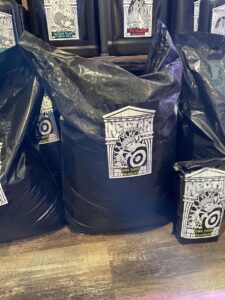Getting Started with Hydroponic Gardening
Plants are cultivated hydroponically, which is a type of gardening without the need for soil. Nutrient-rich water is utilized to supply plants with the vital minerals and nutrients they require to develop and flourish rather than soil. Although this form of gardening has been used for generations, it is growing in popularity among those who wish to cultivate their own food in confined areas, such as balconies or flats.
We will examine the fundamentals of hydroponic growth in this post and offer a beginner's guide to getting started. The benefits, drawbacks, and necessary tools will all be covered. Also, we'll provide you with a few pointers and methods to support you.
How Does Hydroponic Growth Work?
Plants are grown hydroponically, or without the need for soil, using just water and nutrients. Due to its many benefits, this style of gardening is becoming more and more popular. You can produce food all year long, manage and monitor nutritional levels accurately, have a modest environmental impact, and have fewer pests and illnesses.
The fundamental benefit of hydroponic gardening is that it may be carried out in almost any environment. This makes it perfect for confined areas like patios, balconies, and even homes. It also does away with the requirement for a lot of soil, which may be expensive and challenging to get.
The benefits and drawbacks of hydroponic growing
In comparison to conventional gardening, hydroponics has several benefits. It does away with the requirement for soil, which may be costly and challenging to get, as was already discussed. As the plants can be grown closer together, it also delivers a better yield per square foot. This implies that more plants may fit into the same area, increasing production. The plants are also shielded from disease, pests, and weed development since they are floating in the water.
Hydroponic growing can have certain drawbacks, though. One reason is that it needs a lot of tools and materials, such as pumps, reservoirs, and fertilizers. Also, the plants must be constantly watched and checked frequently since they need certain amounts of nutrients and water to survive.
Tools Required for Hydroponic Farming
You will need a few basic tools and ingredients to start hydroponically growing. A water reservoir, a grow tray, an air pump, air stones, and a timer are the elements that are absolutely needed. A fertilizer solution and a growth media must also be chosen.
The nutrition solution is kept in the water reservoir. The plants will be put in the grow tray. The oxygen that the air pump and air stones deliver to the plants' roots is crucial for their growth. You can regulate when the lights and pumps turn on and off with the aid of the timer.
Choosing a growth medium and a fertilizer solution is the last step. Because it includes all the vital minerals and nutrients required to develop the plants, the nutrient solution should be specially made for hydroponic cultivation. Everything from clay pellets to cubes of rock wool can be used as the growth medium.
Information about Hydroponic Growing Techniques
Hydroponic cultivation might first appear difficult, but by adhering to a few simple guidelines, you can make sure that your plants develop and flourish.
• Keep a close eye on your plants to ensure they receive adequate light, water, and nutrients.
• Spend money on a growth medium and fertilizer solution of high quality.
• Keep the water reservoir clean to lower the chance of illness and pests.
• Pay attention to pH levels and modify the nutrient solution as necessary.
• Do your homework on the particular requirements of your plants and give them what they need.
Conclusion
Due to its various benefits and capacity to grow food in confined locations, St Louis hydroponics stores are expanding in popularity. Despite its numerous advantages, it does require some basic tools and materials, and plants must be constantly watched and routinely checked to make sure they are receiving the proper quantity of water, nutrients, and light. Anybody can become a successful hydroponic gardener with the correct knowledge, tools, and care.
https://www.facebook.com/theindoorearthworm

